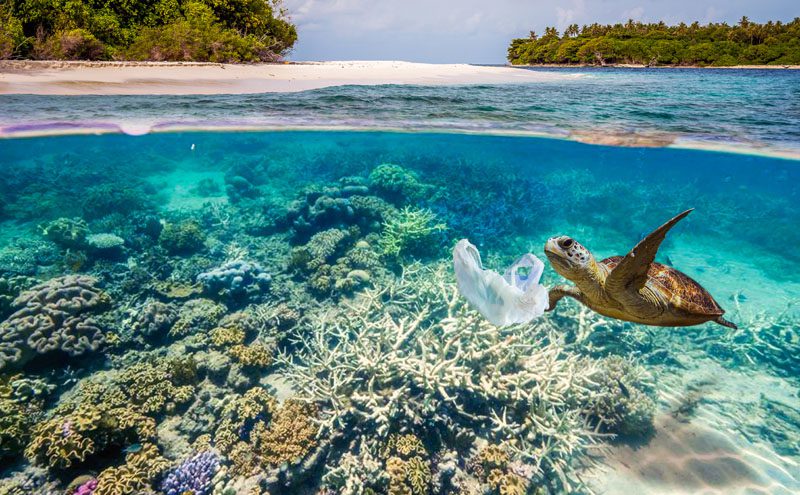
More than 200 countries have signed a UN resolution that will encourage member states to take greater action on the issue of marine pollution, including greater recycling commitments and initiatives to clean up existing ocean pollution.
The passing of the resolution, which was agreed on 6 December at the 2017 United Nations Environment Assembly meeting in Nairobi, falls short of a “Paris-style” global treaty, which many environmental groups had hoped for. It is not legally binding and presents no specific timetable. But there are hopes it will lead to a legally binding agreement.
The BBC reported that a stronger motion failed to gain traction after the US refused to sign up to specific, internationally-agreed goals.
In comments made to Reuters, Norway’s environment minister, Vidar Helgesen, said: “We now have an agreement to explore a legally binding instrument and other measures and that will be done at the international level over the next 18 months.”
The resolution was initiated by Norway, a country where marine pollution has gained public visibility following reports of the contamination of mussels with microplastics and the recent beaching of a rare species of whale.
He told the BBC marine litter was “possibly the fastest-growing environmental problem”, a fact that ought to be reflected in the priorities of businesses.
The UN’s chief of public advocacy at the United Nations Environment Programme (UNEP), which organised the event, Sam Barrat, said 39 governments have announced “new commitments to reduce the amount of plastic going into the sea”, through their participation in the Clean Seas Campaign, which addresses marine litter and ocean pollution. At the UNEP event, four new countries joined the campaign: Chile, Oman, Sri Lanka and South Africa. In total, the countries participating in the campaign account for over half the world’s coastline.
Sri Lanka also announced a ban on single-use plastics starting in 2018, said it would step up efforts to recycle.
China is currently the world’s biggest producer of plastic waste, but was lauded by head of UNEP Erik Solheim, for its recent efforts to cut this down. He told Reuters: “If there is one nation changing at the moment more than anyone else, it’s China … the speed and determination of the government to change is enormous.”
Many plastics firms have been resistant to attempts to introduce bans on specific plastic items in Africa, said the BBC. Some consumer goods retailers and manufacturers claim to be making strides in their efforts to cut down on plastic or better develop its recyclability, and there are different facets to the debate over what to do about plastic, including those who believe the best route is to simply cut it out, or use as little of it as possible.
Responding to the UN announcement, the British Plastics Federation (BPF), the trade organisation for the sector, issued a statement welcoming the “ambition” of the UN, to stop plastics going into the sea. “We hope that now this issue has gained the attention of politicians and the public throughout the world that appropriate, evidence-based measures can be brought in to suit each particular country, taking into account important factors like culture, geography and the existing waste infrastructure.”







